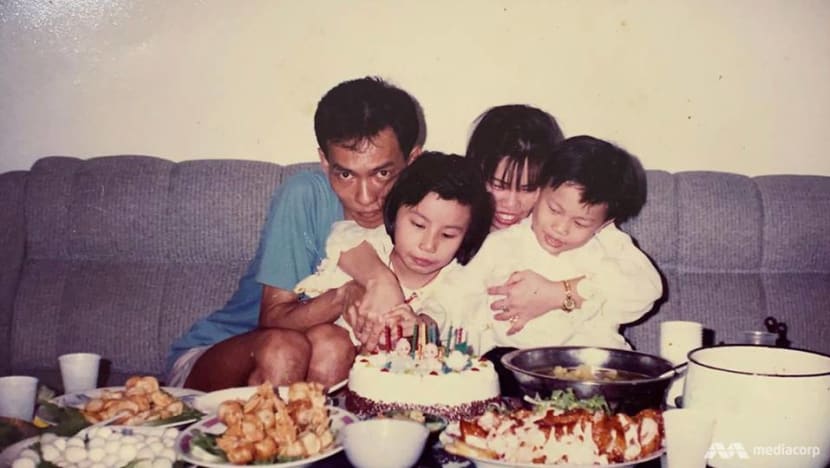To save an old-school ‘zi char’ stall from COVID-19, a family comes together
For the second time, Albert Choy thought a coronavirus was going to kill his food business, 17 years after it first happened. This time, his children had other (digital) ideas to give him a fighting chance.
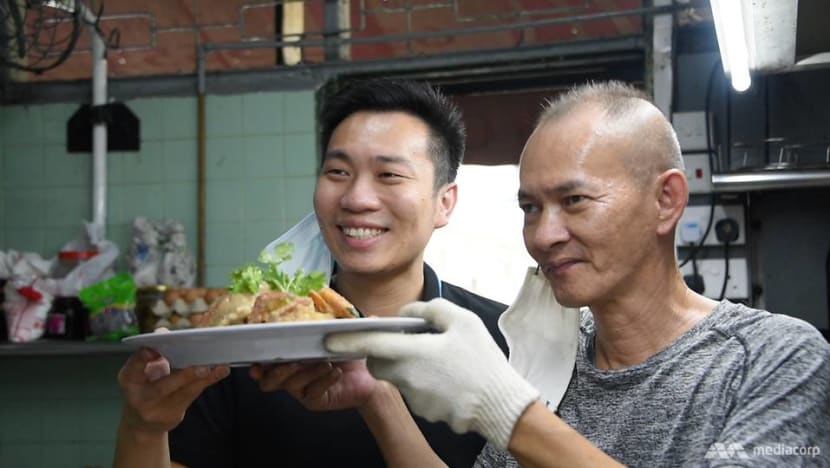
Albert Choy (right), the chef and owner of Ji Xiang Seafood in Old Airport Road, with his son, Chris.
SINGAPORE: He did not want his children to know just how badly COVID-19 had hit his business.
Whenever they called to ask about his zi char stall, Albert Choy Xiong Fa — or Uncle Albert to his customers — would only say he was slightly affected.
But business had dropped by 70 per cent, and from 30 fish heads sold daily to zero. At one point during the “circuit breaker”, he was collecting S$100 plus in sales each day, compared with S$1,000 plus before the pandemic.
“He just kept it from all of us,” recalled Chris, his 34-year-old son.
“He’d say, ‘I think it’s fine’ … But you could sense that he wasn’t convincing. Then you sort of worry, yet you don’t really want to ask further, in case it hurts his feelings.”

His daughter Tina, 37, said: “(He’s) a typical dad figure, like, ‘I can manage.’”
Indeed, he was soldiering on and dutifully paying his workers’ salaries. But within two to three months, he lost S$10,000. “I wasn’t just worried but very worried,” Uncle Albert, the chef and owner of Ji Xiang Seafood, told CNA Insider.
"I’ve been here for so many years, and I didn’t want to let it go … I really held on to it for those few months. It was very tough."
“Here” is a coffee shop in Old Airport Road, which he moved to in 2003 — a move precipitated by the outbreak of the Severe Acute Respiratory Syndrome (Sars) coronavirus, which had caused his previous restaurant business to close.
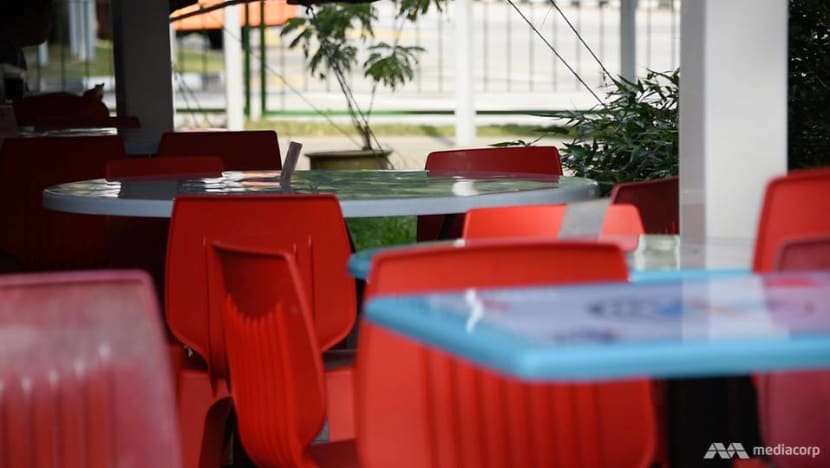
“In these 17 years, I didn’t think that I’d meet with this virus again. This time, the virus is even more severe,” said the 58-year-old, speaking in Mandarin.
He thought things would improve after the circuit breaker. But when it was extended for another month, he was ready to admit defeat for the second time.
“I knew I’d lose a lot,” he said. “I didn’t want to carry on.”
What he did not know, however, was that his children would swing into action when they found out the extent of his losses.
And what was also different now was that his old-school dishes, such as fried intestines, white pepper crab and deep-fried fish roe, could find new customers in this digital era.
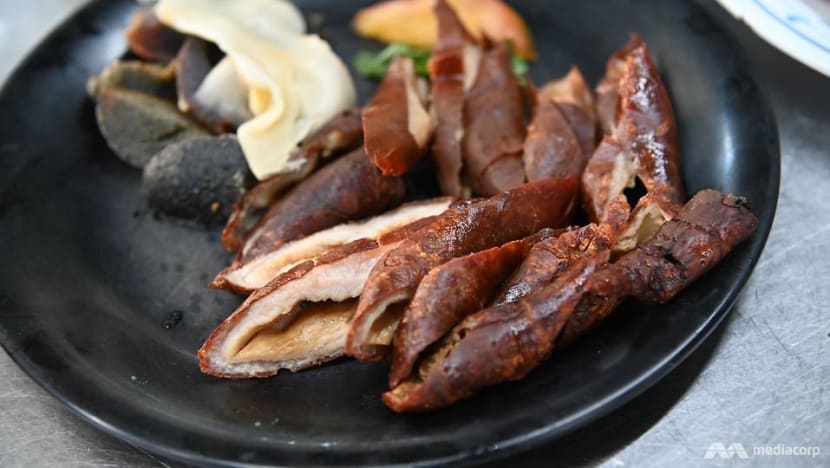
Despite his doubts about going online, he found a way forward with his children’s help. But it has not been easy.
READ: For F&B outlets, COVID-19 is a wake-up call. Here are seven changes they can make
A TOUCH RESISTANT
That it took Uncle Albert so long to disclose his troubles to his children came as no surprise to Chris, who recognised “that’s exactly him”. “He’s a very strong person. He supports the family … He was always there,” he said.
“Growing up, we also had our fair share of moments when we needed his help. For me, it was financial. So he came in to help me — no words said. (He) didn’t say, ‘Hey son, I’m doing this for you. Are you aware?’”
It was Tina who first heard from her father that he was thinking of calling it quits. And her first thought was that she could not let him walk away like that.
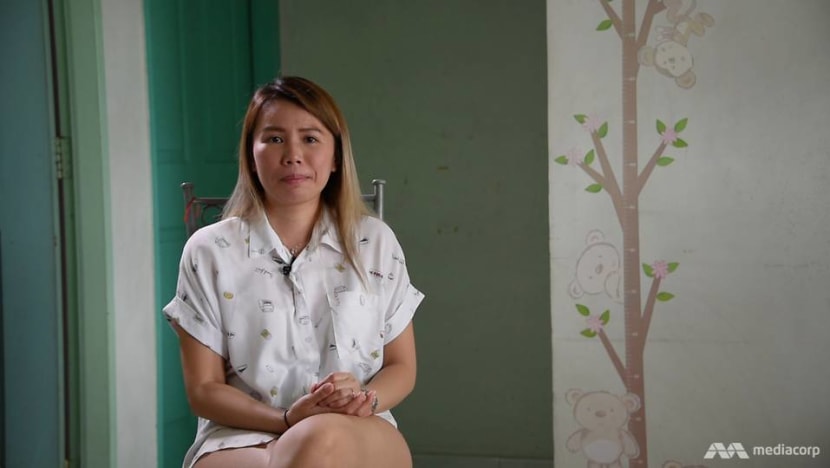
“If he doesn’t have the stall any more, then what’s he going to do? I know he can go and work for someone else, but I know that’s not what he wants,” she said.
He also had to pay the medical bills for his wife’s late-stage colorectal cancer, which is now in remission.
He figured he could find a job that pays S$4,000 to $5,000 a month, which is not more than half of what he used to earn when times were good.
But his daughter latched onto another idea after she saw the Facebook group, Hawkers United — Dabao 2020, a community initiative for hawkers to promote their food and take orders for delivery.
WATCH: An old-school hawker goes digital (7:19)
He was not hopeful and even a touch resistant. While this was a cost-free platform, unlike the delivery apps whose commissions he maintained were too high, he had another objection on “principle”.
“I hope every customer would finish their food in front of me and then tell me that the food is very delicious. And when they order takeaway, I’d tell them the food won’t be as nice,” he said.
“If people eat at my stall, I can tell you that out of 100 people, 98 of them would have a satisfaction rate of 98. If they order takeaway … my food would lose some of the score.”
And then, he feared, customers would not come back. That would be a blow to someone who takes pride in his “retro dishes” that many others are no longer cooking, and who makes everything himself instead of using ready-made options.
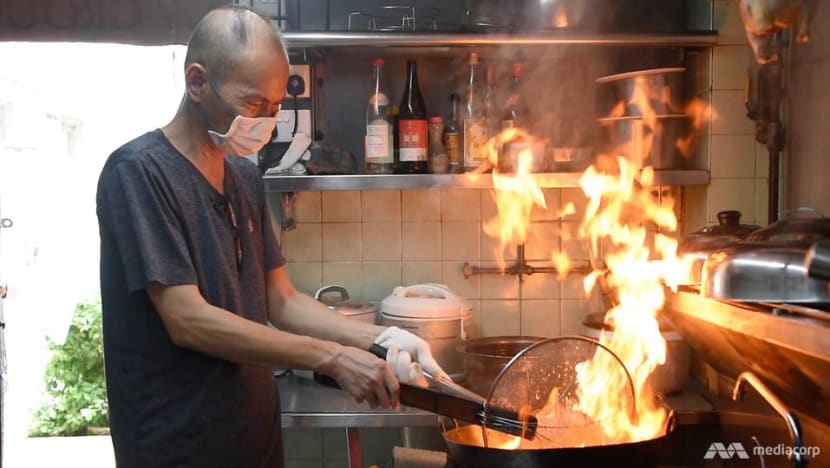
So he had reservations about going digital, but he agreed to give the suggestion a try.
“When you’re driven into a corner, you don’t really have a choice. That’s how he gave in to my sister,” said Chris. “He didn’t want to burden us, but we insisted.”
THE FIRST DAY
The hardest challenge, however, still lay ahead of them.
Tina, who works in customer service for a multinational company, had some experience from her own online business selling herbs. And she found drivers to make the deliveries for her father’s stall.
But she did not expect her “brief” Facebook appeal for help for her father’s “old-fashioned” stall to go viral.
“I knew it would get some traction, but I didn’t think it would be so crazy,” she said. “I posted (it) in the afternoon. And then boom, boom, boom, boom, boom.”
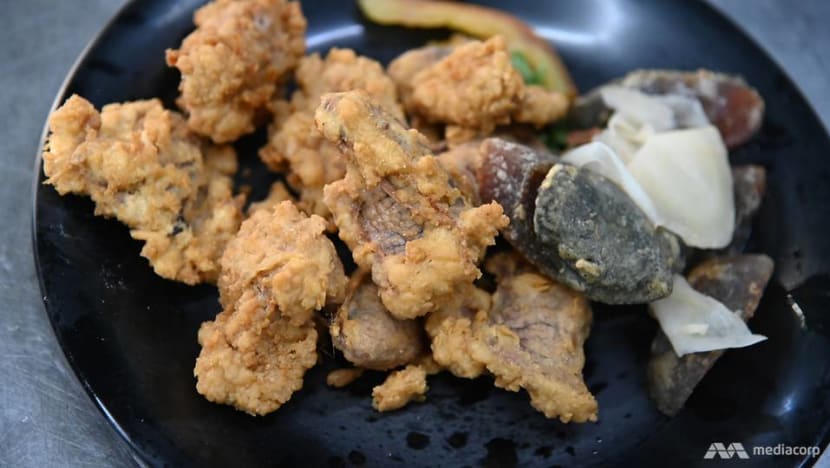
She was flooded with responses via WhatsApp, and what with liaising with one of her father’s workers on the orders as well as with the drivers on the deliveries, she could not reply in time to many “eager” customers.
“I was so stressed out because (there were) so many direct messages … I was like, ‘Oh, this could be big for my dad.’ And I wanted to help him,” she recounted.
(But) I only had one pair of hands. Then I felt very bad. Some of the customers got angry.
She eventually replied to all of them, apologising to those whose orders she missed or could not fulfil.
“After we finished everything, I just sat down. Then I started crying because I felt that I could’ve done more for my dad,” said an emotional Tina. “I felt that on my own I had no power (to help him).”
But help she did. Her father was so busy in the kitchen that he was “exhausted” that night. “He wouldn’t talk to me! He was like, ‘I want to go home and rest,’” she said.
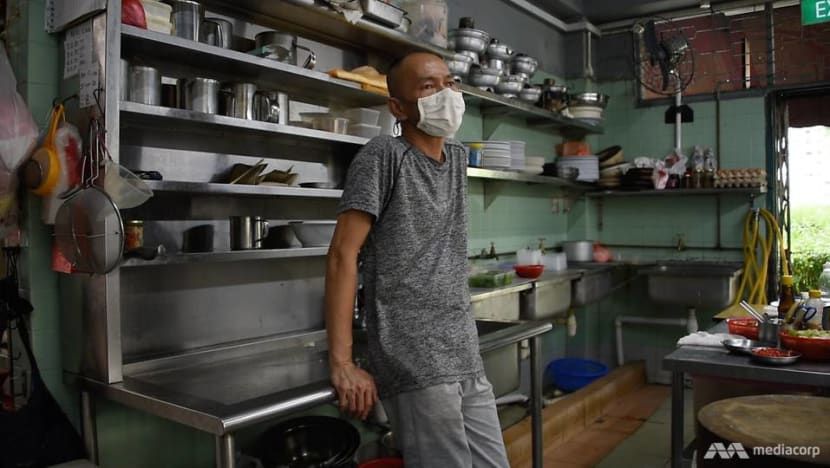
And in the end, she found the responses overwhelming in more ways than one. “You can see how all Singaporeans … want to help these true-blue hawkers,” she observed. “Very stressful, but it was a very nice experience.”
It was not, however, something she could cope with on a daily basis amid her work, her own business and her three children. And the teething problems needed sorting.
So when her brother called to find out how the first day had gone, she broke down and asked if he could help.
Chris, an insurance adviser, spoke to his wife, Vivian. Together the parents of two agreed not only to help but to take over the online effort.
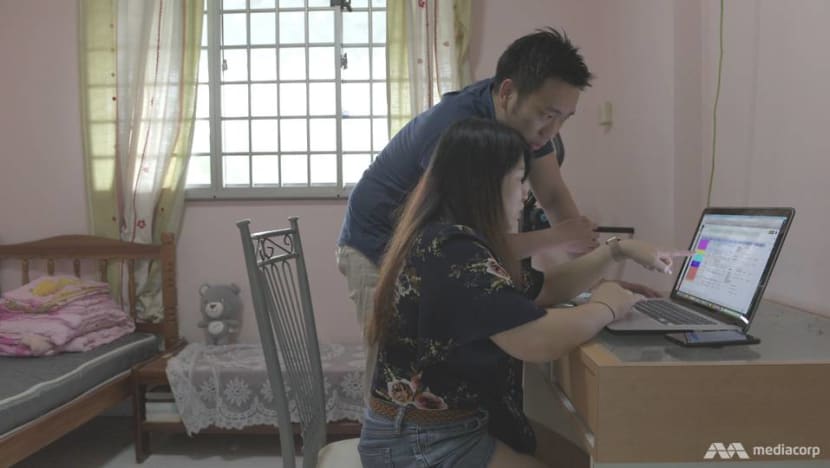
‘LIGHT AT THE END OF THE TUNNEL’
The first thing the couple did was to set up a spreadsheet system to streamline the process for customer orders.
Tina also spoke to her husband, Rob Willock, whose expertise was in marketing, and he decided to create a website for the stall. It was up within days, with photos and videos the children took of their father at work.
And it became the main vehicle for the online orders. To make the system even easier to handle, the children came up with set menus, instead of an a la carte menu with all the many dishes.
“The price was what we struggled (with) the most,” said Tina. “Everyone was coming out with a lot of attractive packages, and we were going as low as S$30 with free delivery just to help my dad to get by.
“If you want to talk about profit, (it was) really not much.”
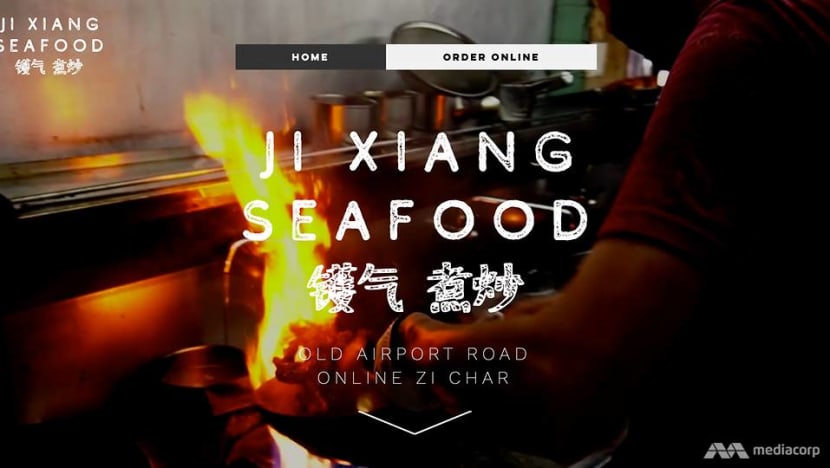
It was, however, enough for their father to realise that selling his food online was “doable” as business “picked up slowly” over a two-week period during the circuit breaker.
It culminated with a lot of advance orders for Mother’s Day, when business was “extremely good”, he recalled — and again for Father’s Day. “Then I saw some light at the end of the tunnel,” said Uncle Albert.
The one thing he had insisted on was that the food collected by the drivers had to reach the customers within 30 minutes, so that it would not turn cold.
This required Chris to group the deliveries into batches of three and to plan the routes, which “wasn’t easy”, observed his sister.
But their father was pleased with the results. “They all were able to achieve that,” he said. “The feedback (customers) gave me was that they were very satisfied with my food.”

That was “very important to him”, Tina noted. “Every day, he’d ask me, ‘What’s the customer feedback?’” she recalled. “He didn’t care how much he made; he just cared about what the customers (said) about … the food.”
Vivian had been actively engaging and thanking customers. And in some cases, they sent their compliments to the chef by video, to show him their children eating.
“You see, they’re so happy. Uncle Albert, thank you,” he cited as an example of what the parents said.
They give me money to earn, but they say thank you to me.
GROWING CLOSER
The response from Singaporeans was one of the things that did surprise Chris in all of this. “They started to tag other people. So you could see that they were drawn to help. So that was very heart-warming,” he said.
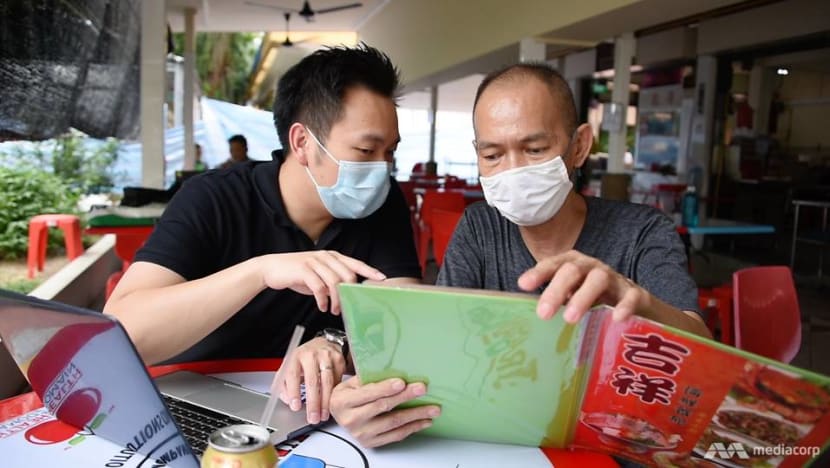
His sister was equally surprised at how gamely her father responded by, for example, agreeing to being filmed for the website, which includes a thank-you video to his new customers.
“He’s a joker. He likes to say random things and joke, but that video isn’t something that my dad would do,” she said.
“So when my brother asked him to do it, and he did it, that made me (be) like, ‘Whoa!’”
Peering behind the lens as this happened, Chris remembers it as a moment when “you sort of had that warm feeling that you’re doing things right”.
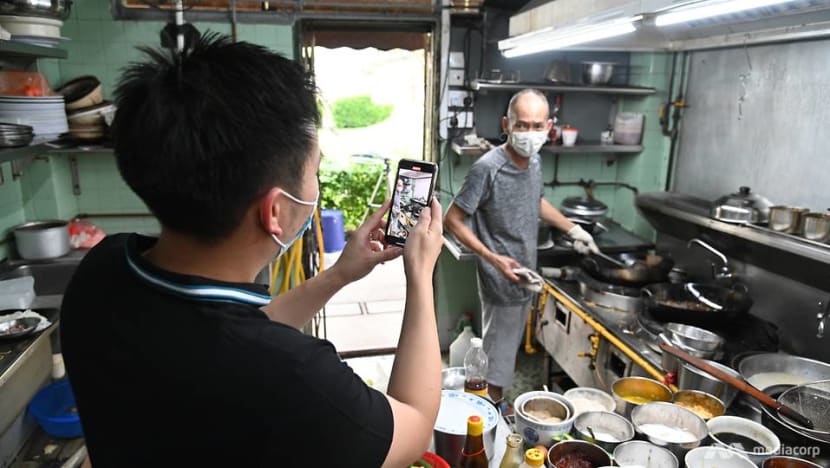
His family may not be the expressive kind — “classical Asians”, he said wryly — but the children could see what their efforts meant to their father.
“When he saw that business flowed in, he expressed his gratitude and said, ‘I couldn’t have done it without you all,’” recalled Chris.
The family also grew closer, said Uncle Albert.
“I won’t say thank you to them … But I’d (think of) a very practical way, such as going to their homes. My wife and I would go to their homes and buy food that they like to eat,” he said.
“We started to talk on the phone every day. If there weren’t this pandemic, we might meet once or twice a month. Now it’s different already. Now they’d call and ask about the business every week.”
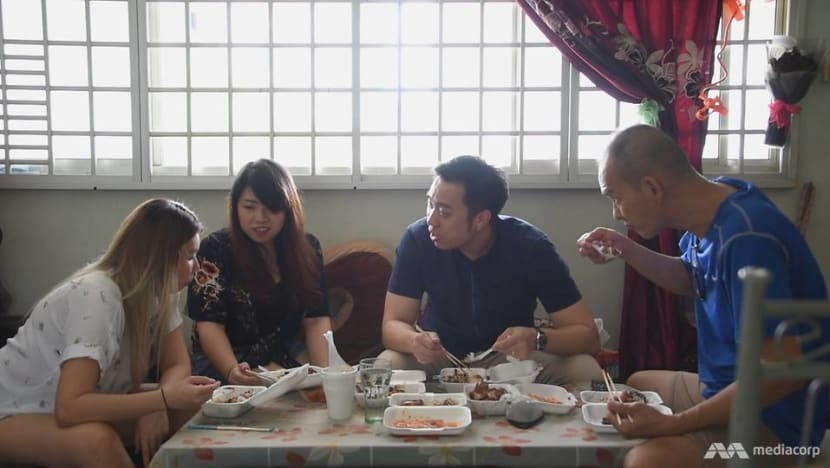
Business returned to about 80 per cent of pre-pandemic levels after the Old Airport Road coffee shop was closed for renovations throughout August.
With that, his stall has temporarily paused online orders because of a manpower issue. Three of his staff returned to Malaysia during the circuit breaker and “can’t come back”.
He is left with four workers and is “trying very hard to find Singaporeans to work”, but to no avail.
READ: No takers for 1,000 F&B jobs, says restaurant association
As far as he is concerned, however, the “difficult times” are over. “(My income) is stable already,” he said. “I don’t have to worry about it any more.”
With other countries seeing a second wave of infections, Tina thinks it is worth keeping the online operations. Chris even suggested to his father that he expand the business.
“Having an opportunity or a platform to share a dream with (my) father … is something that I can consider a breakthrough,” he said. “You can’t call it a blessing but something unexpected, something good that came out of (COVID-19).”
